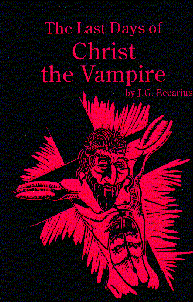Saw the movie (spoiler alert:)
Life of Pi yesterday afternoon. It was visually stunning. The acting was superb. The two-hour narrative was compelling, though I grew impatient with the long sojourn in the Pacific Ocean, which took up at least half the movie. As a film, it is definitely worth seeing. I have not read the
novel.
However, thematically I have a big problem with it. For its major theme is belief vs reason, and while it gives reason some props, and preserves ambiguity, belief ends up having the upper hand.
The film is enacted mostly in flashbacks. Pi's story is supposed to convince a skeptical journalist of the existence of God. Pi himself as a young man develops a belief system in which he is a combination, Hindu, Christian, and Muslim. (Later in life, as a scholar, he develops an interest in Judaism.) His brothers mock him for adopting several religions at once; his father, however, is a rationalist and skeptic, warning Pi not to be fooled by the pageantry of religious ceremonies as they distract from the darkness underlying all religion. Pi, raised in a zoo, develops an early empathy with animals, and even tries to develop a rapport with a tiger named Richard Parker, who eventually becomes the second most important character in the tale. But Pi's father warns him not to project his own human emotions onto the tiger, giving him a graphic demonstration of what tigers as predators are really like.
Later on (spoiler alert) Pi spends half the movie trapped on a lifeboat with the tiger Richard Parker. This goes on a bit too long, and though not boring, could tax the patience of a viewer who rejects the basic premise of the narrative, which involves a paradoxical symbiosis between man and tiger.
The story Pi tells about this sojourn on the Pacific is so incredible that the question arises at the end whether, without corroborating evidence, it can be believed, or for that matter, an alternative story that Pi makes up. And this is related to belief in God.
Pi does in the end give credit to his rationalist father for teaching him the survival skills necessary to deal with the tiger. So in the spirit of eclectic liberal tolerance, rationalism too occupies a place of honor, even if in the end a subordinate one, in the pantheon of religious pluralism.
The emphasis on the believability and desirability of one possible narrative among others on the basis of congeniality alone strikes me as decidedly postmodern and consonant with the liberal religiosity congenial to the upper middle class, with an inherent appeal to a middle class middlebrow or art film audience. These people are suckers for Pi's eclectic spirituality. I do not like this.
Given the foregrounding of Pi's relationship with animals, particularly the tiger, I thought at first that the spirit of the film was essentially pantheistic, but the violence of nature is not soft-pedaled. Pi constantly invokes God, which inevitably points to theism, despite the misguided, unrealistic empathy with the tiger, who has to be tamed anyway.
I also have a problem I have with the essentially individualistic character of spirituality, common among religious people irrespective of education and class, but obnoxious in a special way in bourgeois spirituality. It doesn't matter how many people suffer as long as one person is miraculously spared. The faith of the lone survivor is always vindicated in this world view. But the universe is not your friend, and even if by chance it seems to act that way upon occasion, it surely ain't everybody's friend.
The unbelievable fantasy dimension of the narrative (the ocean odyssey) is irritating even though clever, and its framing in the context of belief in the existence of God is really a waste of the imagination deployed in concocting this tale. And the beautiful visual imagery, reflecting the exquisitely developed technology now at the filmmaker's disposal, reflects the disparity between our advanced technological capability and the constriction of our ideological universe.
I wrote most of the above review upon arriving home yesterday, before I discovered this article:
Life of Pi author Martel hears from Obama,
Winnipeg Free Press, 04/8/2010
According to the article, the author received a letter of praise from President Obama. Read attentively what Obama wrote, and tell me this does not confirm my analysis to a 'T'. It's fitting to contemplate this amidst all the fakery of today's presidential inauguration:
"My daughter and I just finished reading Life of Pi together. Both of us agreed we prefer the story with animals. It is a lovely book -- an elegant proof of God, and the power of storytelling. Thank you."
I can't think of a more fitting basis on which to condemn this story.




